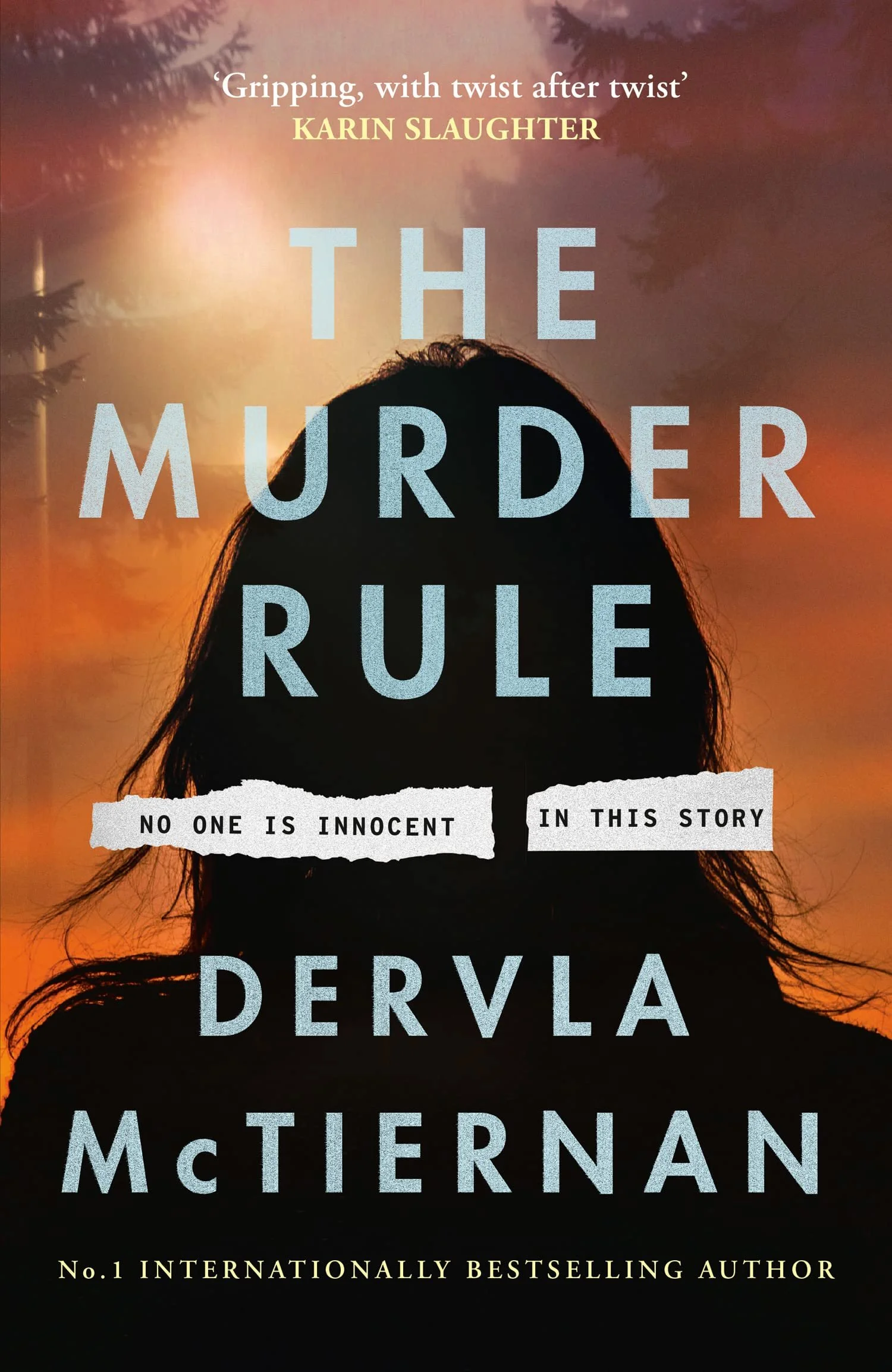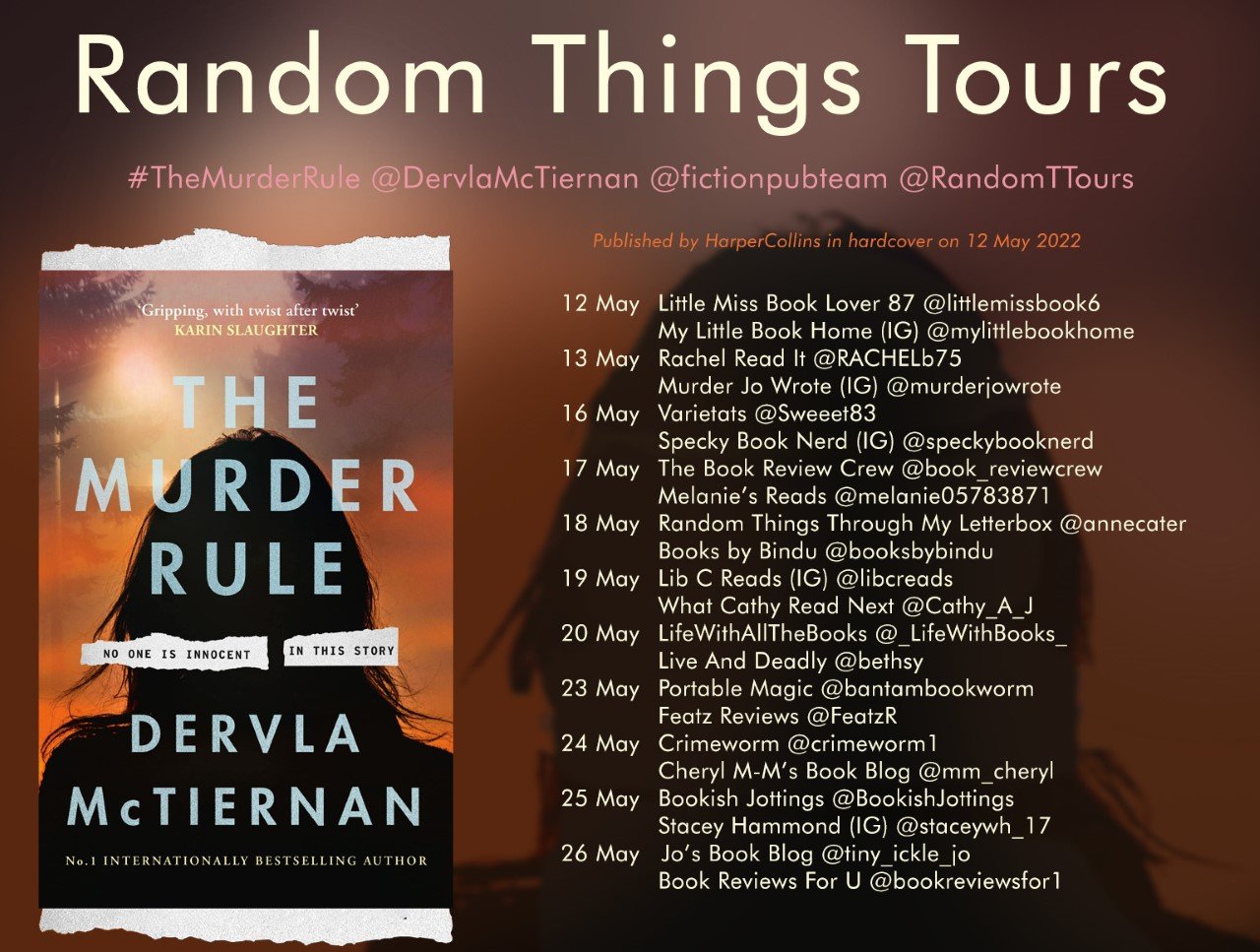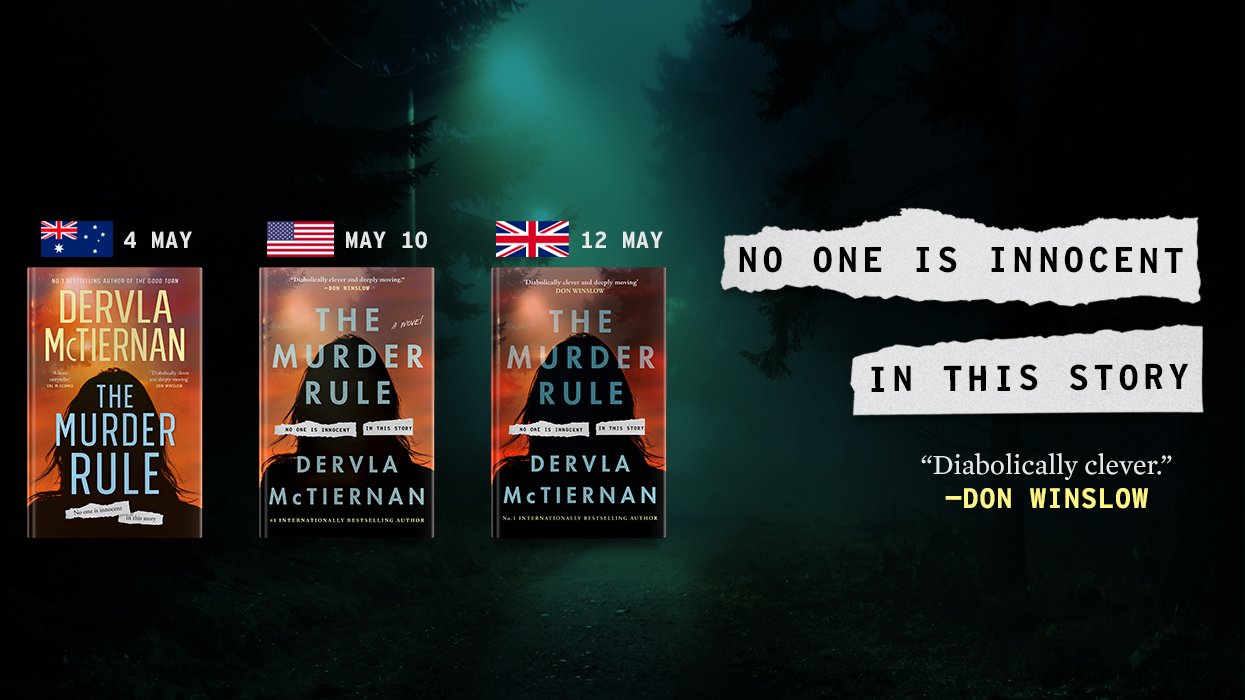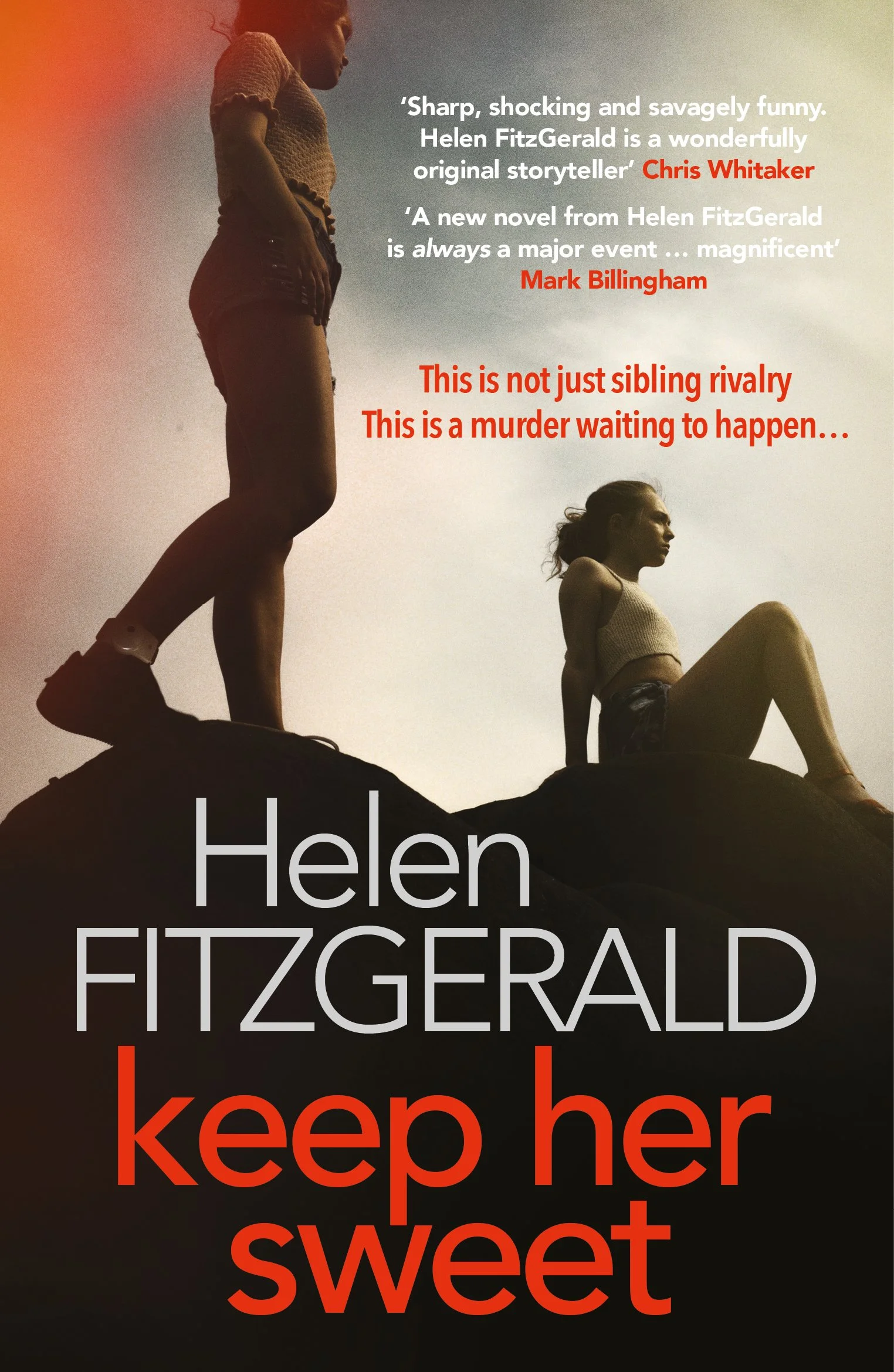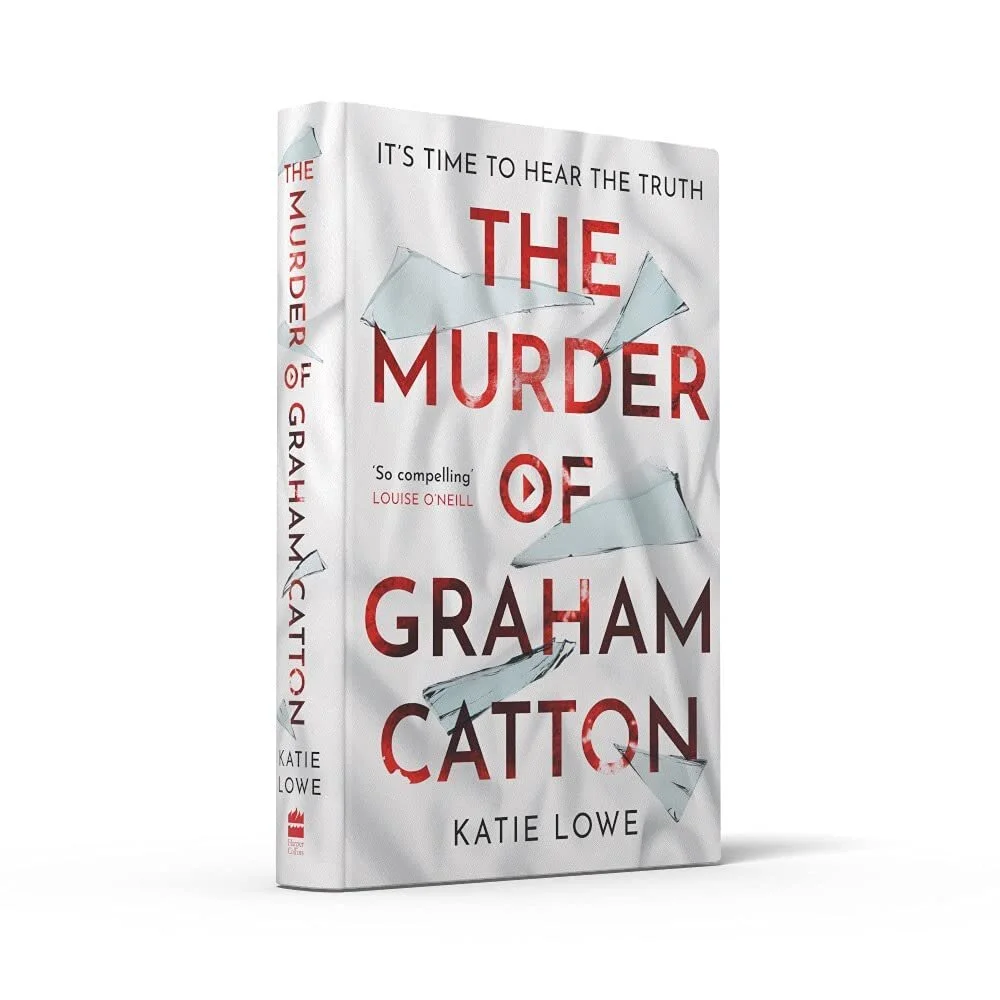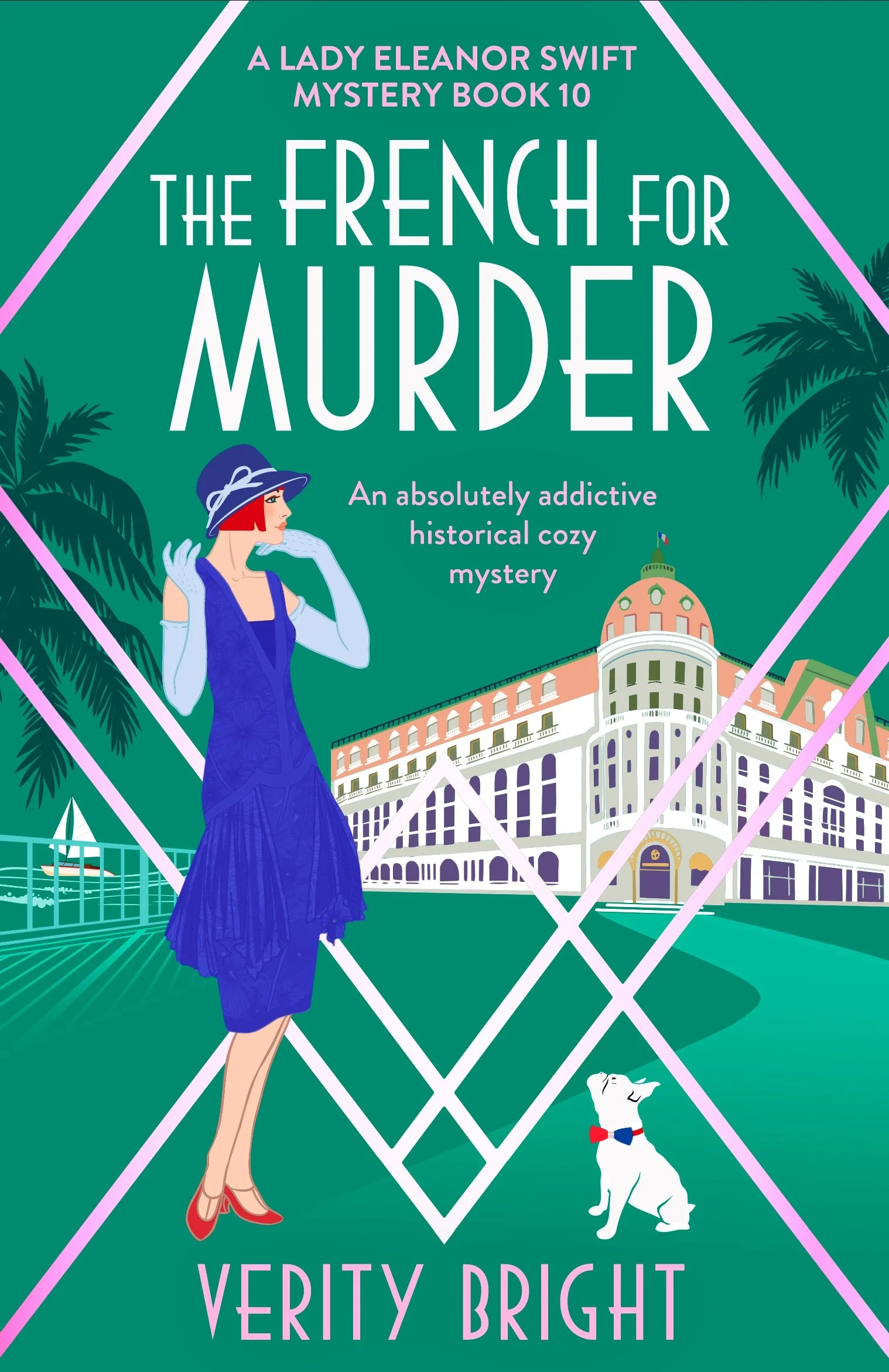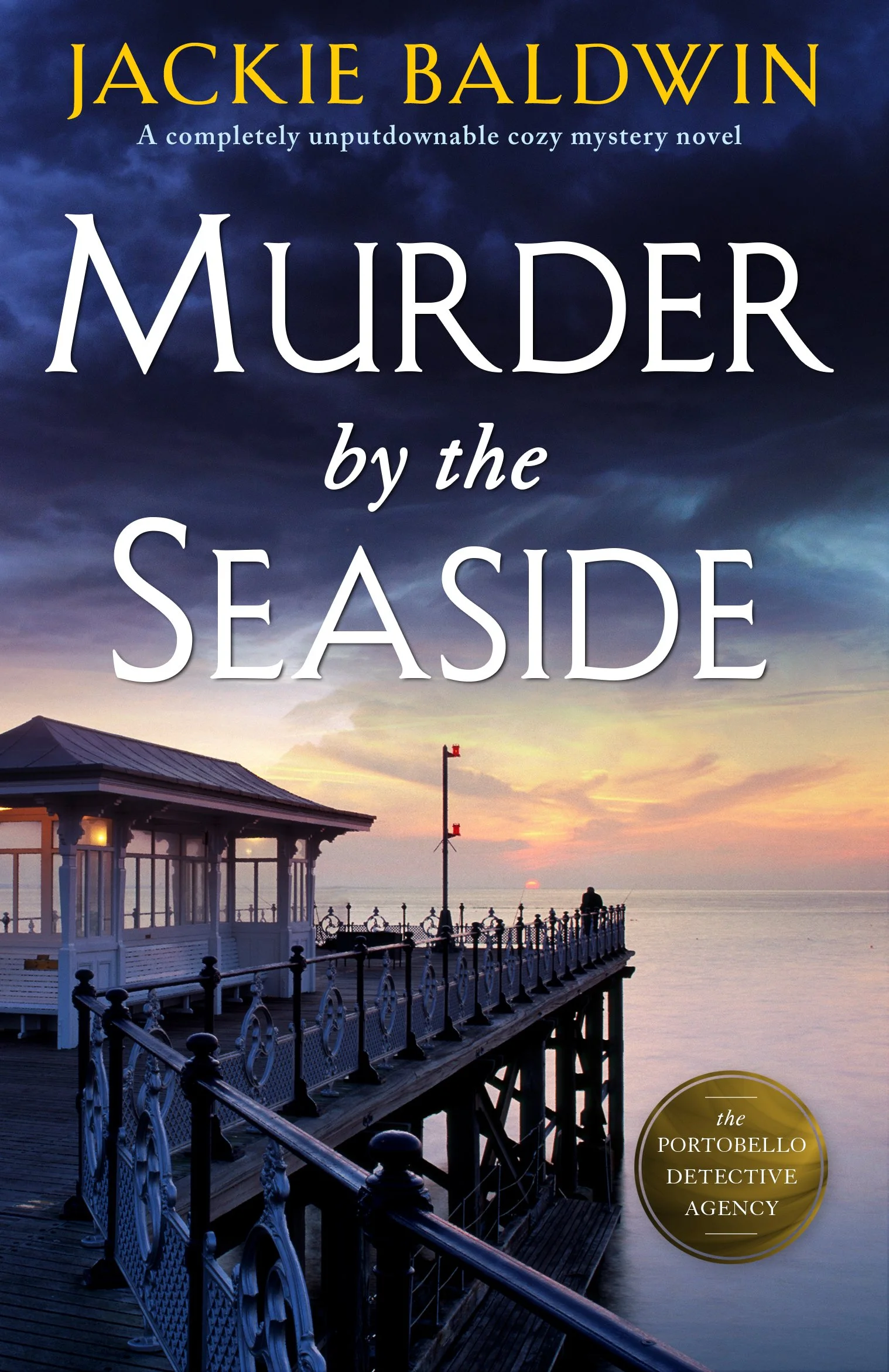The Murder Rule by Dervla McTieran
First Rule: Make them like you.
Second Rule: Make them need you.
Third Rule: Make them pay.
They think I’m a young, idealistic law student, that I’m passionate about reforming a corrupt and brutal system.
They think I’m working hard to impress them.
They think I’m here to save an innocent man on death row.
They're wrong. I’m going to bury him.
About the author
Internationally bestselling and critically acclaimed writer Dervla McTiernan burst onto the writing scene with The Ruin, her crime debut set in Ireland. The Ruin is the first in the detective Cormac Reilly series and has been published in the United States, the UK and Ireland and in New Zealand and Australia, where it was a top ten bestseller.
Dervla spent twelve years working as a lawyer. Following the global financial crisis, she moved to Australia and turned her hand to writing. An avid fan of crime and detective novels from childhood, Dervla wrote a short story, The Roommate, which was shortlisted for the Sistersin Crime Scarlet Stiletto Competition. She went on to write The Ruin, and a string of other bestsellers. Dervla is a member of the Sisters in Crime and Crime Writers Association, and lives in Perth, Australia, with her husband and two children.
Review
‘The Murder Rule’ was an entertaining and compelling read. This is a stand-alone book, the first from the author, and is the first of her books which I have read. I have included a letter from Dervla which goes into her inspiration and a bit about the organisations in America that work on legal cases like this. I have always been fascinated by stories like this one and I completely disagree with the death penalty. So I was hooked right from the start.
I think you will enjoy this book much more if you don’t question certain things like how Hannah just got to walk into The Project, accept the legal system might not work this way etc! I enjoyed the narrative much more when I did this. I liked the idea of retribution and revenge and thoroughly enjoying the differing voices - Hannah in the present and excerpts from her mother’s diary from the 1990’s. It managed to hold my attention this way as the story was slowly unravelled. I quite liked Hannah, yes she did some questionable things, but she still came across as a strong caring young woman. It’s hard to be someone’s carer especially if it’s a parent and the emotionally intertwining was spot on for that mother-daughter relationship. I really loved Sean though and I would certainly read more stories based around his character!
This was the first book of Dervla’s that I had read and I enjoyed it. Have you read this one?
Letter from Dervla
Dear Reader,
The Murder Rule grew from the smallest of seeds. I came across an article in a newspaper about a young Irish law student who had spent a summer volunteering in the US. Her name was Niamh Gunn, and she had spent her summer working for the Innocence Project, trying to free Walter Swift, an innocent man, from prison. When her time in America was over, Niamh kept working the case from Ireland. She managed to convince a retired police officer to tell her the truth about evidence that had been hidden in the original prosecution. As a result of her hard work, Walter Swift, who had spent 26 years in prison, was freed.
The article fascinated me. Maybe because I had been a lawyer, once, though not the kind of lawyer who saves innocent death row prisoners. I wrote and negotiated contracts for Irish companies. Most of my clients traded overseas. I had to learn how to find common ground with people working in all kinds of industries, and from many different backgrounds, countries and cultures. That was the best part of the job. But the nature of legal work is that it is adversarial—every day there is another battle to be fought. It wore me down and left me feeling burned out and disillusioned. Eventually, I left the law, emigrated to Australia, and decided to put everything I had into becoming a writer.
It wasn’t that simple, of course, and the journey was a winding one, but in 2018 my first novel, The Rúin, was published, and it made it into the top ten bestseller list. The Scholar followed twelve months later, and it made it into the top five. Twelve months after that The Good Turn was published, and it made it all the way to number one. These days I’m a full-time writer and I feel grateful and lucky to be in that position every single day.
Still, I’m fascinated by the law. By its nooks and crannies, its weird idiosyncrasies, and its deep injustices. The article about Niamh Gunn stayed with me. I found it so inspiring. Niamh had been so young. Once upon a time I had been a young law student working in the States (Maine, in my case) but Niamh had clearly put her time to much better use than I had, and she had achieved so much. I did some more research, reading everything I could find about the case. My enthusiasm was a little dimmed by what I discovered. It turned out that even after the hidden evidence was found, it took a further five years before the exoneration application was heard, and by the time he was freed Walter Swift had only 3 years left on his maximum sentence.
To me this was quite different to the inspirational story of triumph over adversity that I’d first read. It was sadder and more complicated, and I wondered why these details had been left out of the articles I’d read. Maybe it was because the journalists (or their editors) preferred the cleaner, more inspirational take. Or maybe (darker thought) the Innocence Project had pushed the prettier story as part of a publicity drive for their work. Or maybe I was just over-complicating things, reading into the situation facts not in evidence at all. Still, the discovery made me think about moral grey areas. About what it must be like to be a good person working for the Innocence Project. Doing such impossibly challenging work in a world that is so loud, and messy and unwilling to listen or help. What small ethical compromises would I make along the way, and where could those choices lead me? I felt that there was a story in that idea. A story that could fold in on itself, with twists and turns and pace and, hopefully, heart.
The Murder Rule came from my memories of Maine, which have always been among my brightest and most tightly held, and from my preoccupation with the idea of moral compromise, the Innocence Project, and with America.
Thank you so much for all your support and I hope you enjoy it.
Dervla McTiernan

